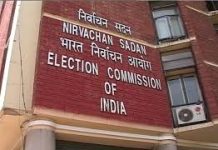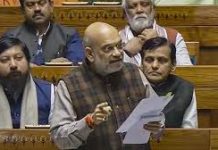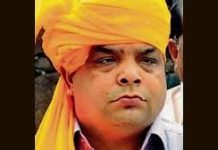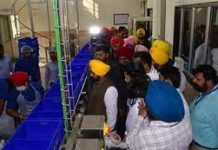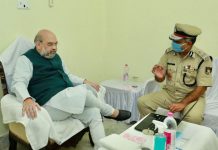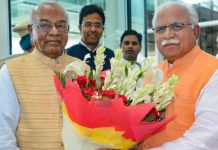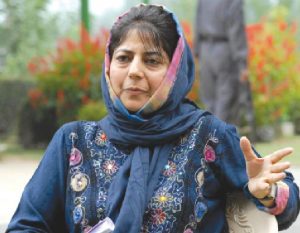 In first such resolution of its nature since the revocation of Article 370 on August 5 last year, the People’s Democratic Party (PDP) on July 21 reiterated its commitment to fight for the restoration of the special constitutional and legal status of the erstwhile state of Jammu and Kashmir. The party termed the August 5 move as the “darkest chapter” in the history of J&K.
In first such resolution of its nature since the revocation of Article 370 on August 5 last year, the People’s Democratic Party (PDP) on July 21 reiterated its commitment to fight for the restoration of the special constitutional and legal status of the erstwhile state of Jammu and Kashmir. The party termed the August 5 move as the “darkest chapter” in the history of J&K.
Significantly, the resolution was passed in Jammu, the Hindu majority part of the J&K, that is supposed to largely support the abrogation of the Article 370. The former MLA Surinder Choudhary who chaired the PDP meeting termed the loss of autonomy “as a blot on the Indian Parliament”. The PDP accused the BJP of land grabbing in J&K instead of ensuring the welfare of the people of J&K. The party called for a return to its founder and former J&K Chief Minister Mufti Mohammad Sayeed’s “vision of peace, reconciliation and dialogue” to end the current uncertainty in the union territory.
As for its future strategy, the PDP expressed support for the Gupkar declaration wherein various mainstream Kashmir-centric parties had unanimously resolved to be united in their fight “to protect the identity, autonomy and special status of J&K”. Gupkar declaration was issued on the eve of the revocation of Article 370 at the residence of the National Conference president Dr Farooq Abdullah. However, the following day, as the home minister Amit Shah was announcing the reading down of the Article 370 in the parliament, the leaders of all Kashmir based parties and many of their Jammu based counterparts were arrested. It was only after months in detention that the government began releasing them one by one, starting with middle-rung leaders who reportedly were freed only after signing the bond of silence. This was followed by the release of the top NC leader Farooq Abdullah and that of his son Omar Abdullah, both former chief ministers of J&K.
However, the government has yet to free the PDP president Mehbooba Mufti who is now under detention at her official residence. Similarly, leaders like Sajad Gani Lone, Shah Faesal are also detained at their respective residences and the former MLA Engineer Rashid has been shifted to Tihar jail.
This has brought the political activity in Kashmir to a halt. The leaders like Abdullah and Omar have largely been silent following their release. And the consequent political vacuum is being filled up by the subdued activity of the newly established party like Apni Party, led by a businessman turned politician Altaf Bukhari. However, unlike the established parties, the NC and the PDP, Bukhari’s party is largely in line with the centre’s policy on the former state.
It remains to be seen how will the Valley based political parties react once all their leaders are released and allowed to hold political activity. The NC leader and the Member Parliament Hasnain Masoodi is already on record to have said that Gupkar declaration will be a basis for their future politics.
But as things stand, the J&K administration is unlikely to countenance any dissenting political views at this juncture. Hence the continued detention of the leaders like Mehbooba whose daughter Iltija Mufti has been fiercely vocal about the Article 370. Similarly, the senior PDP leader and Mehbooba’s close confidante Naeem Akhtar was recently evicted from his official residence.
This doesn’t give hope that the political activity in Kashmir will restore to normal anytime soon. That is, unless the J&K administration is certain that it will not challenge its Kashmir narrative. “We will take a decision once all leaders are released. We will meet and work out our future program,” said a mainstream leader on the condition of anonymity. “Yes, Gupkar declaration will remain a basis of our co-operation”.
letters@tehelka.com

